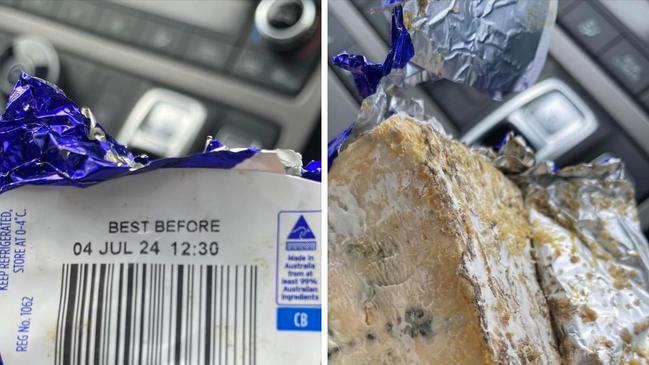Cheese best before date sale sparks supermarket food labelling standards debate
An online post about blue cheese sold past its best before date has sparked a debate about food labelling standards.
SA News
Don't miss out on the headlines from SA News. Followed categories will be added to My News.
Does the thought of eating a product past its best before date make you shudder or are you happy to tuck into your favourite dairy several days beyond?
When a Facebook user shared her experience with a blue cheese reportedly purchased at Hove Foodland on July 13, more than a week after its best before date of July 4, commenters were aghast.
The comments and photo of the cheese in question, posted to an online community group this week, sparked an online debate about food expiration labelling.
In her post, the woman said the cheese smelled “really awful” but when she tried to return the product, a staff member told her that is what blue cheese is like.
She said she eventually received a refund without a receipt and asked if the store would remove any remaining product from the shelves because she was concerned for the public’s health and safety.
Foodland has been contacted for comment.

Facebook users quickly jumped to debate whether the supermarket should have sold the cheese.
The Advertiser understands Holdfast Bay Council has since sent an inspector to the Foodland.
But despite the online debate, the practice is perfectly legal.
According to the statutory authority responsible for the development and maintenance of the Australia New Zealand Food Standards Code, there are largely two types of date markings that are stamped on foods.
These are use by dates and best before dates.
Food Standards Australia New Zealand says foods that are labelled with a use-by date can’t legally be sold beyond the marked date and shouldn’t be eaten because they could pose a health or safety risk.
However, foods that have a best-before date can be legally sold and eaten past that date as long as the food is “fit for human consumption”.
Alessia Centofanti, SA Health Manager of Food Standards Surveillance, said in those cases it’s typically up to the individual retailer to then determine when the product is suitable for sale.
She said best before dates were there “for loss of quality”.
Ms Centofanti said products marked best before can be eaten for a long time afterwards, adding that at some point those foods will start to show signs of physical deterioration, which is when it’s “best not to consume it”.





